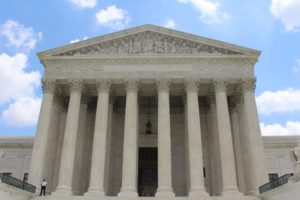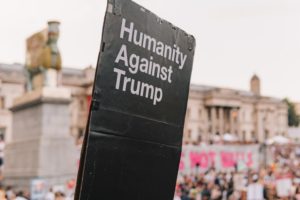 UPDATED: 2019-03-21 12:00 PM
UPDATED: 2019-03-21 12:00 PM
Although generally known as the silent and stoic Justice on the Supreme Court — often not saying a word in open court for multi-year stretches — Justice Clarence Thomas asked his first question in 3 years involving race.
Thomas is only the second African-American justice in US history.
He opposes governmental racial remedies across the board, and has voted against such implementations of that philosophy like campus affirmative action and electoral districts drawn to enhance the voting power of minorities who have long faced bias at the polls. Thomas believes the Constitution’s equal protection guarantee forbids such racial measures and, in a practical vein, argues that they stigmatize blacks, Latinos and other racial minorities.
To very briefly summarize, a portion of case heard on Wednesday morning examined the legal precedent for the Court’s interference in cases where State court juror’s were allegedly struck from the jury during the Voir Dire processes based solely on their race.
Attorney Sheri Lynn Johnson argued on behalf of the defendant in this case, relaying that the prosecutor from the lower court was consummate offender of this type of voir dire decision making, and thus infringed on the rights of her client.
Thomas, at the very end of the hour long hearing, suddenly spoke and essentially turned the tables by asking Johnson about the use of peremptory challenges by the defense team, not the prosecution.
“Ms. Johnson, would you be kind enough to tell me whether or not you exercised any peremptories … were any peremptories exercised by the defendant?”
“They were,” Johnson responded.
“And what was the race of the jurors struck there?” Thomas asked.
Referring to Flowers’ trial attorney, Johnson said: “She only exercised peremptories against white jurors. But I would add that … her motivation is not the question here. The question is the motivation of Doug Evans.”
Justice Sonia Sotomayor, interjected, pointing out that the defense lawyer could not have eliminated any black jurors because the prosecutor had already removed most of them.
“She didn’t have any black jurors to exercise peremptories against — except the first one? … After that, every black juror that was available on the panel was struck?”
“Yes,” Johnson said.
Thomas asked nothing more.


